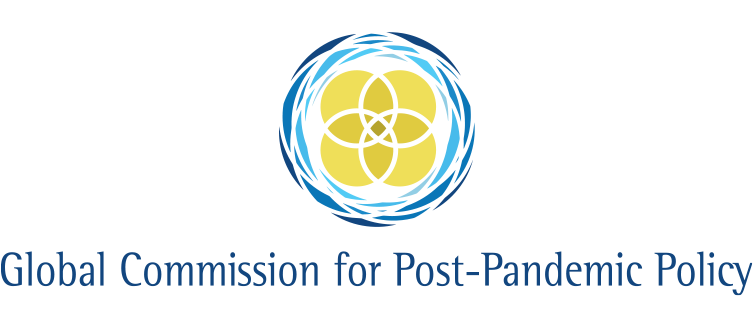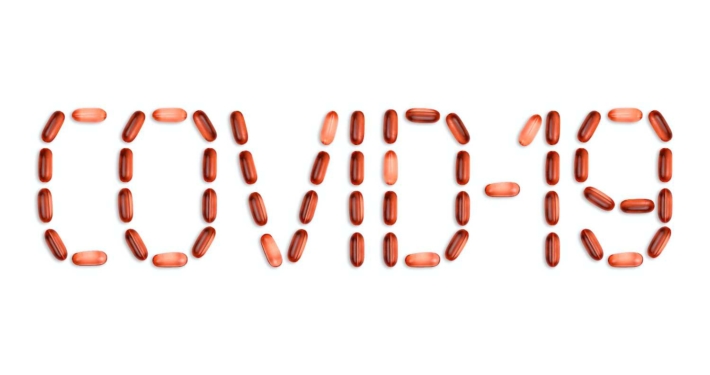The Pandemic, week to June 18th
The head of the World Health Organization (WHO) announced that COVID-19 cases have dropped globally for seven straight weeks, the longest such period since the pandemic began. However, a tale of two pandemics is coming into sharper focus. COVID cases are decreasing in every region of the world except Africa, where weekly figures have jumped 44% and death rose by 20%, with some healthcare systems struggling to cope. Many South American countries also continue to battle surges, likewise countries such as Indonesia or Afghanistan. Meanwhile, US states from New York to California are seeing grand reopenings, with similar loosening of restrictions and low caseloads across Europe.
Vaccine deployment is playing a critical role in these global disparities. The UK and US have fully vaccinated around half of their populations, with other Western countries such as Canada and EU members closing the gap fast. Meanwhile barely 10% of people in South America have received two shots, while vaccinations in Africa and India lag further still. However, even those countries leading the vaccine rollout have cause for concern from the rapid spread of the Delta variant, with the British government extending lockdown rules by four weeks having recorded 10,000 daily cases for the first time since February, and holiday hotspots in the US seeing significant Delta-driven case spikes.
Health
In China, the sheer number of vaccines going into arms continues to dwarf efforts in the rest of the world. China is on track to have administered 1 billion vaccine doses by the end of the week, as part of an ambitious drive to vaccinate 40% of its population by the end of June. Cash incentives, gifts and colour-coded signage celebrating or shaming businesses based on their vaccination rates have all been deployed to encourage take up of the free, voluntary shots, the Guardian reports.
In Russia, the situation could not be more different. Despite claiming to have been the first country to approve a COVID-19 vaccine last year, the Russian government reported its highest case numbers since February. Both production problems and public hesitancy are behind the slow vaccine rollout, which a Kremlin spokesperson admitted“leaves a lot to be desired”. Meanwhile Moscow’s deputy mayor has warned that hospitals will be overwhelmed in two to three weeks if the current growth in cases persists, and city authorities have ordered workers in occupations with a public facing role — representing 2 million workers in the capital, from teachers and taxi drivers, to hairdressers and performers — to get vaccinated.
Novavax announced promising results of a clinical trial of its COVID vaccine in the US and Mexico. The two-shot jab recorded an efficacy of 90.4%, putting it on par with Pfizer and Moderna. Exactly when Novavax shots reach the public is unclear. The company suggested it would not seek emergency authorisation from US regulators until September. And even then, with authorities having access to three strong vaccines already, Novavax might be recommended to pursue the lengthier process of applying for a full licence. The company is also set to apply for authorisation in the UK, EU, India and South Korea.
Germany has issued 5 million vaccination passports to its citizens as part of the EU’s digital pass system. The country launched the scheme on June 14, encouraging users to download their status to a smartphone app. On the same day, German officials announced the country’s separate coronavirus tracing app had helped alert some 200,000 people who later tested positive for COVID. It is not all good news from Germany, however, with its Curevac mRNA vaccine posting an efficacy level of just 47% in recent trials. The disappointing results, following more successful early trials, have been blamed on new virus variants.
Iran has approved its first domestically developed COVID vaccine, state news outlets report. The COVIran Barekat vaccine was developed by drug maker Shifafarmed by using deactivated virus. Another vaccine, jointly developed with Cuba, is expected to be available soon.
Economy
The US Federal Reserve brought forward projections for interest rate hikes, the first since the pandemic began, to 2023. The Fed’s latest policy statement was upbeat, lauding improvement in the health crisis and dropping previous references to the pandemic being a drag on growth. The debate is now open on the central bank’s massive bond-buying programme, with Fed chair Jerome Powell saying officials had started “talking about talking about” tapering the central bank’s $120 billion in monthly asset purchases, but that the policy would continue until “substantial further progress” has been made toward the central bank’s maximum employment and 2% inflation goals.
In the UK, the 12-month inflation rate jumped to 2.1% in May, outpacing the Bank of England’s target for the first time in two years. Fears are growing that the easing of pandemic restrictions will lead to a sustained rise in the cost of living. The price of fuel has jumped 20% from last year, while the consumer price index rose by the most in six months, driven by clothing, restaurant food and drinks, online computer game and music downloads. The UK is not alone in facing surging inflation: Brazil delivered its third consecutive interest rate increase as inflation is forecast above its central bank’s mandated target range for this year.
In the EU, construction industry leaders have warned that “dangerous” price rises and shortages of building materials risk undermining the EU’s €800 billion economic stimulus package. The sector accounts for almost 10% of European economic output and the recovery fund is set to finance many large infrastructure projects.
In South Korea, shipbuilders and sea freight companies will list on the stockmarket later this year to take advantage of the global trade recovery. The move is expected to raise billions for shipbuilder Hyundai Heavy Industries and sea-cargo companies H-Line Shipping and SM Line. Around the world, shipping firms are celebrating their best year in more than a decade.
Back in the US, Latinas have left the workforce at higher rates than any other demographic group during the pandemic, a new study by the UCLA Latino Policy and Politics Initiative, a Latino-focused think-tank, found. Before the pandemic, Latinas were projected to increase their numbers in the workforce by nearly 26% in the decade to 2029, a higher rate than any other group. The findings could spell trouble for the post-pandemic recovery, but also in the long term as more baby boomers retire and if women in general are feeling compelled to leave work.
Politics
In the Asia Pacific, Japan is pursuing a strategy of vaccine diplomacy in an attempt to counterbalance China’s parallel efforts in the region — despite Japan’s own painfully late domestic rollout ahead of the Tokyo Olympics. The country is donating vaccines to Taiwan and Vietnam directly, rather than through the UN-backed COVAX scheme. A million AstraZeneca doses have been sent to Vietnam, as part of a 120-million-shot deal between Japan and the manufacturer. At home, Japan is using the Pfizer and Moderna vaccines and has no plans to use AstraZeneca amidst concerns about rare blood-clotting events, although the country has approved the jab.
In Geneva, there was a rare public sighting of Russian president Vladimir Putin for bilateral talks with US president Joe Biden. The Russian leader has largely shut himself away during the pandemic, forcing powerful business people, regional governors, his staff and even Second World War veterans to quarantine themselves before meeting him. This system remained in place even after Putin’s first Sputnik V shot in March.
EU countries reached an agreement to ease entry restrictions for US travellers. America was added to a growing whitelist of nationals permitted make non-essential travel from outside the bloc, along with Albania, North Macedonia, Serbia, Lebanon, Taiwan, Macau and Hong Kong. It is not yet clear when the measures will come into effect. Meanwhile, the US and Canada met to discuss how to lift border restrictions, although no immediate action is expected and measures set to expire on June 21 are expected to be extended. A meeting is also due to occur between the US and Mexico.
The European Commission has recommended the bloc appoint a chief epidemiologist by the end of the year. This came as part of a list presented by the EU’s executive arm of 10 lessons learned from the COVID pandemic. The proposals will be discussed at a summit of EU leaders next week.
And finally, divisive partisan politics spilled over in the US as right-leaning pundits falsely accused Dr. Antony Fauci of cashing in on the pandemic. They pointed to the listing of a book written by America’s most prominent public health official being removed from Amazon, with a rumour spreading that it had been in response to public outcry at his “profiteering”. Dr Fauci is in fact making no money from the book, and it was removed simply because his publisher had posted the listing too early.


 Volodymyr Hryshchenko, Unsplash
Volodymyr Hryshchenko, Unsplash
 Adam Nieścioruk, Unsplash
Adam Nieścioruk, Unsplash
 visuals, Unsplash
visuals, Unsplash


